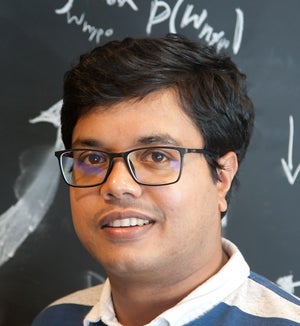Seminar • Human-Computer Interaction — Designing Technology for Sustainable Development

Department of Computer Science, University of Toronto

Li Liu, PhD candidate
David R. Cheriton School of Computer Science
Entanglement is a type of resource used in quantum information theory that gives correlations that cannot be simulated using classical probability theory. It is known that entanglement cannot be created locally.
Robin Cohen
David R. Cheriton School of Computer Science
Jaemyung Kim, PhD candidate
David R. Cheriton School of Computer Science
Transaction durability guarantees the ability to recover committed transactions from failures. However, making every transaction durable impacts transaction processing performance. Some ad-hoc durability mechanisms (e.g., delayed durability) improve performance, but they risk transactions losing their effects due to failures. The current one-size-fits-all transaction durability model does not solve this problem.
John P. Conley, Department of Economics
Vanderbilt University
Blockchains are distributed, immutable, append only, ledgers designed to make trustless interactions between anonymous agents feasible and safe. The ledgers are maintained by networks of independent nodes who process transactions and come to a consensus view of which are valid and how this affects the ledger state. The integrity of blockchain ledgers therefore depends on the incentives contained in the consensus protocols that are designed to make the validating nodes behave honestly.
Nick Rollick, Graduate student
Department of Pure Mathematics
For this week's seminar, I invite you to join me for an informal chat about my experiences using "reflective responses" in my elementary number theory course. In these bi-weekly formal reflective assignments, my students were asked to set and monitor learning goals, identify gaps in understanding, and ponder the value and importance of their course material. Most importantly, I responded in detail to every student's reflection, creating a meaningful course-long conversation.
Anastasia Kuzminykh, PhD candidate
David R. Cheriton School of Computer Science
Video-mediated communication has long struggled with asymmetrical constraints on situational awareness, especially in hybrid work meetings between collocated and remote participants. Advances in computer vision offer exciting opportunities to augment mediated situational awareness, but we must first understand what is meaningful to capture and present.
Dhinakaran Vinayagamurthy, PhD candidate
David R. Cheriton School of Computer Science
Zeming Liu, Master’s candidate
David R. Cheriton School of Computer Science
Jeff Avery, PhD candidate
David R. Cheriton School of Computer Science